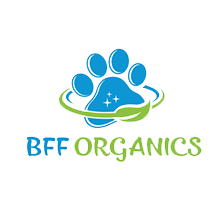Fort Worth Mobile Vet
Fort Worth Mobile Vet
The Importance of Vaccinations
Understanding Dog Vaccinations
A Guide for Dog Owners
Vaccinations play a crucial role in maintaining the health and well-being of our canine companions. As a responsible pet owner, it's essential to understand the significance of vaccinations, the diseases they protect against, and the schedule recommended for your furry friend. In this blog, we will delve into the importance of dog vaccinations, the types of vaccines available, and what you need to know to keep your pet healthy.
Why Are Dog Vaccinations Important?
Vaccinations are a vital part of preventive healthcare for dogs. They help protect against various infectious diseases that can be severe or even life-threatening. Vaccines work by stimulating the dog’s immune system to recognize and fight pathogens like viruses and bacteria. By vaccinating your dog, you are not only safeguarding them but also contributing to the health of the wider canine population through herd immunity, which helps to reduce the spread of infectious diseases
Common Diseases Prevented by Vaccinations
Several major diseases can impact dogs, including:
- Canine Parvovirus (CPV): A highly contagious virus that can cause severe gastrointestinal illness, leading to vomiting, diarrhea, and dehydration.
- Canine Distemper Virus (CDV): This serious virus affects a dog’s respiratory, gastrointestinal, and central nervous systems, often resulting in severe neurological complications or death.
- Canine Adenovirus (CAV): This virus leads to infectious canine hepatitis, which affects the liver and can be fatal.
- Rabies: A viral disease that affects the brain and is almost always fatal once symptoms appear. Rabies is a zoonotic disease, meaning it can be transmitted to humans.
- Leptospirosis: A bacterial infection that can cause kidney and liver damage, and it can also be transmitted to humans.
- Bordetella bronchiseptica
- : This bacterium causes kennel cough, a highly contagious respiratory illness commonly spread in places where many dogs congregate, like kennels and parks.
Types of Vaccines
There are two main types of vaccines: core and non-core.
Core Vaccines
- DA2P: Combination vaccine that protects against Distemper, Adenovirus, and Parvovirus.
- Rabies: Required by law in many areas.
Non-Core Vaccines
- Bordetella: Recommended for dogs at risk of kennel cough, especially those that are frequently around other dogs.
- Leptospirosis: Suggested for dogs that may be exposed to potentially infected wildlife or contaminated water.
Vaccination Schedule
Veterinary Guidance
Conclusion
The Importance of Cat Vaccinations
A Comprehensive Guide for Cat Owners
As a cat owner, ensuring the health and wellbeing of your feline friend is a top priority. One of the most effective ways to protect your cat from potentially severe diseases is through vaccinations. This blog post will explore the significance of cat vaccinations, the diseases they prevent, the types of vaccines available, and the vaccination schedule you should follow to keep your kitty healthy.
Why Vaccinations Matter
Vaccinations are a pivotal aspect of preventive healthcare for cats. They work by stimulating the immune system to recognize and combat pathogens such as viruses and bacteria. By vaccinating your cat, you're not only protecting them from harmful diseases but also contributing to the health of the broader feline population. Herd immunity, which occurs when a significant portion of a community becomes immune, helps reduce the spread of infectious diseases, benefiting all cats.
Common Diseases Prevented by Vaccinations
Several diseases can affect cats, some of which can be fatal. Vaccines provide protection against the following common feline diseases:
- Feline Viral Rhinotracheitis (FVR): Caused by the feline herpesvirus, this highly contagious disease leads to respiratory illness, sneezing, nasal congestion, and eye infections.
- Feline Calicivirus (FCV): Another contagious virus that causes respiratory issues in cats, FCV can lead to ulcers in the mouth and can sometimes result in more severe systemic disease.
- Feline Panleukopenia (FPV): Often referred to as feline distemper, this virus can cause severe gastrointestinal symptoms, including vomiting and diarrhea, and is particularly dangerous for young kittens.
- Rabies: A deadly virus affecting the central nervous system, rabies can be transmitted to humans and is usually fatal once symptoms appear. Vaccination against rabies is legally required in many regions.
- Feline Leukemia Virus (FeLV): This viral infection can weaken the immune system and increase the risk of cancer. It is transmitted through close contact, so indoor/outdoor living situations may affect the likelihood of exposure.
- Feline Immunodeficiency Virus (FIV): Also known as feline AIDS, FIV attacks the immune system, making infected cats more susceptible to other infections. This virus is mainly spread through bites.
Types of Vaccines
Vaccines for cats are categorized into two types: core and non-core vaccines.
Core Vaccines
Core vaccines are essential for all cats, irrespective of their lifestyle and environment. These typically include:
- FVRCP: A combination vaccine that protects against Feline Viral Rhinotracheitis, Feline Calicivirus, and Feline Panleukopenia.
- Rabies: Required by law in many places, this vaccine provides critical protection against rabies.
Non-Core Vaccines
Non-core vaccines are recommended based on individual risk factors, such as lifestyle, environment, and exposure potential. Examples include:
- FeLV: Recommended for outdoor cats or those that may interact with other cats of unknown vaccination status.
- FIV: Typically suggested for cats that have a high risk of exposure, especially those who go outdoors or live with FIV-positive cats.
Vaccination Schedule
The vaccination schedule for cats often begins when they are kittens. The initial vaccinations typically start at six to eight weeks of age, with boosters given every three to four weeks until they are about 16 weeks old. After completing the kitten series, most core vaccines are administered every one to three years, depending on the vaccine type and individual health factors.
Your veterinarian plays a crucial role in determining the best vaccination plan for your cat. We will consider your cat’s age, health status, lifestyle, and risk exposure in order to establish a tailored vaccination schedule.
Conclusion
Cat vaccinations are an essential part of ensuring your feline companion lives a healthy, happy life. By protecting your cat from life-threatening diseases, you are not just safeguarding their wellbeing; you are also preventing the spread of diseases within the feline population. Regular veterinary check-ups, combined with a well-planned vaccination schedule, will contribute significantly to your cat's overall health. Always consult Fort Worth Mobile Vet for advice on vaccinations and stay informed about the latest recommendations. Remember, a vaccinated pet is a happy and healthy pet!
Contact Us
We will get back to you as soon as possible.
Please try again later.






Proudly Powered by Snapps





